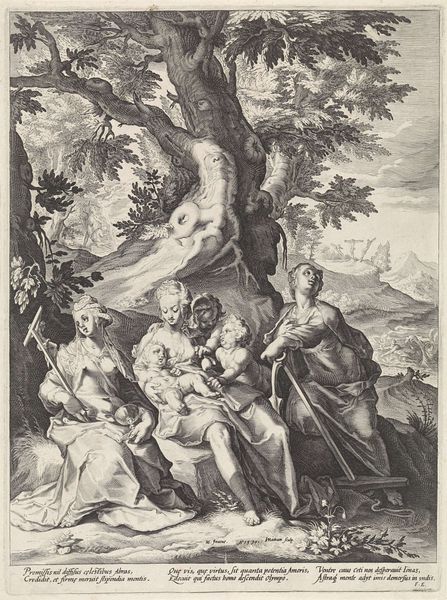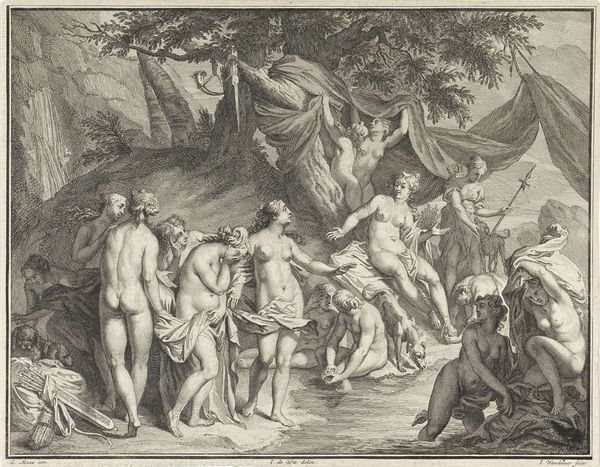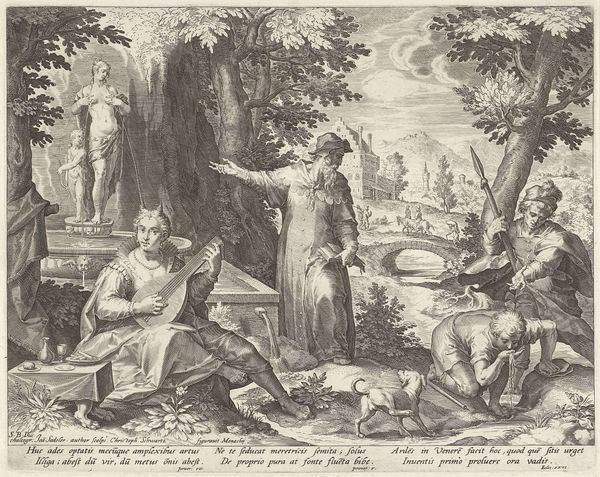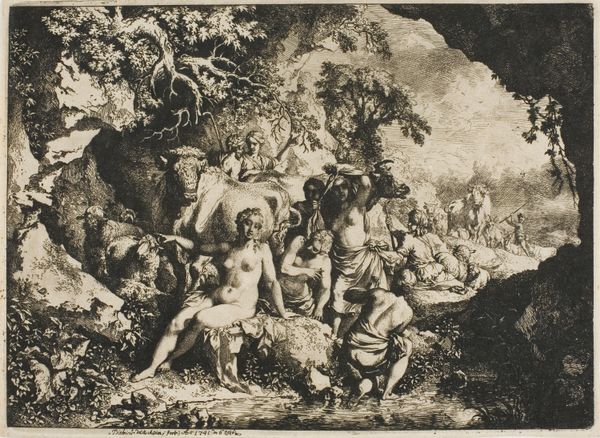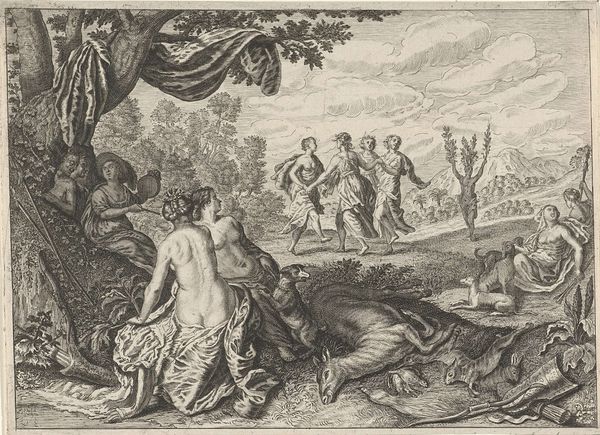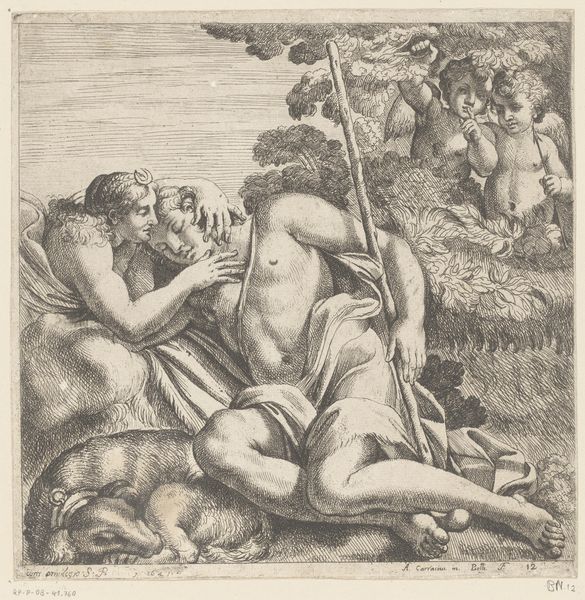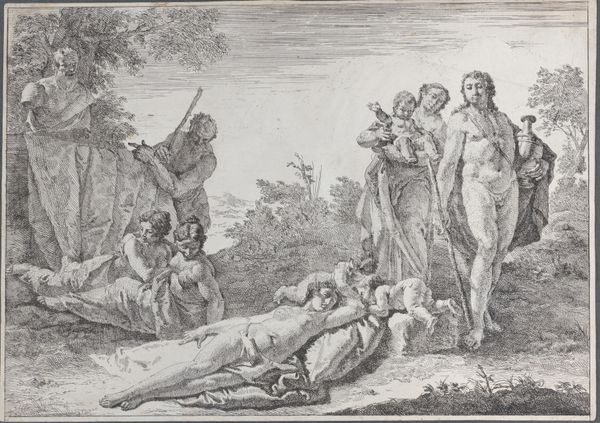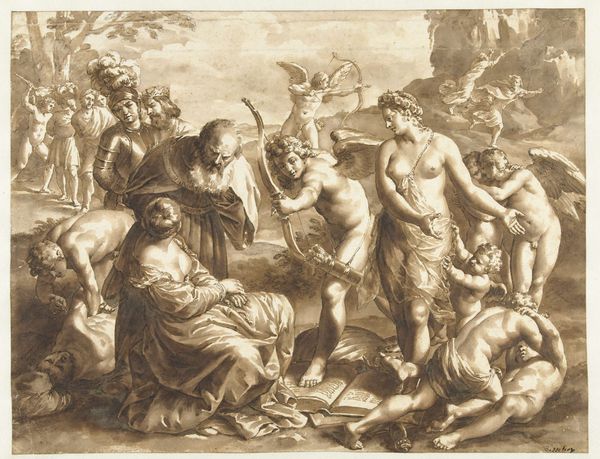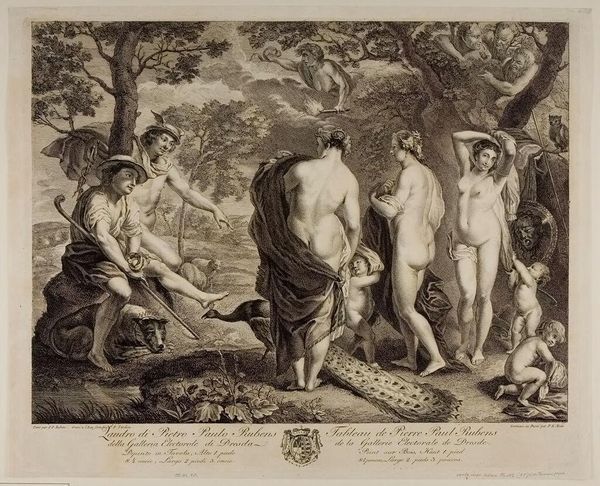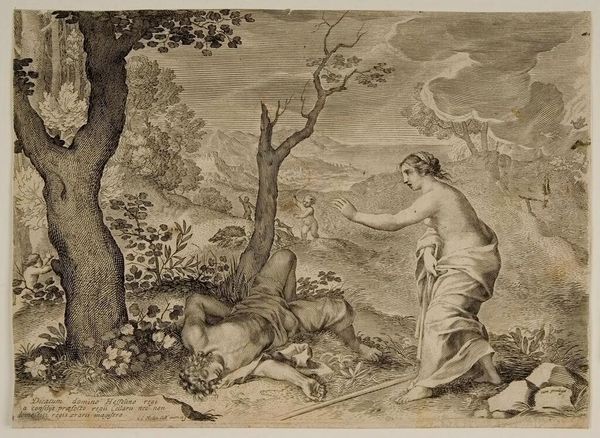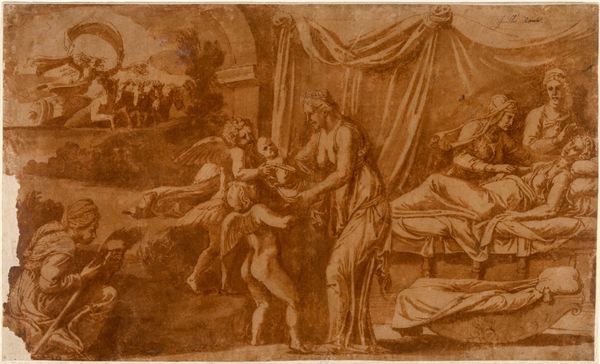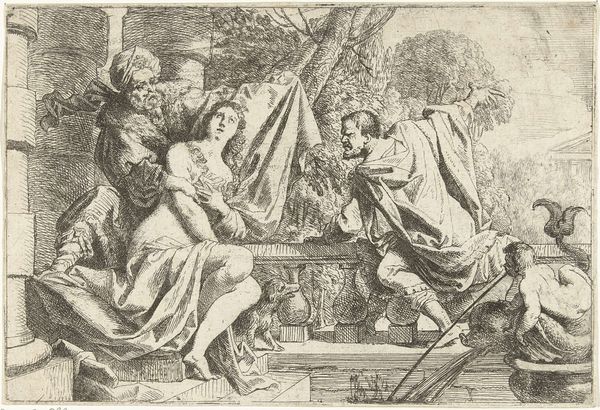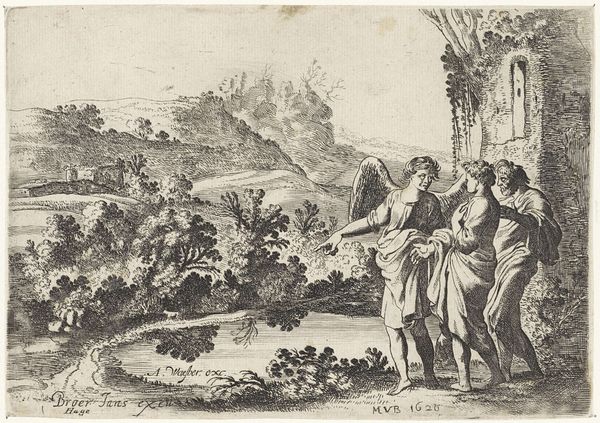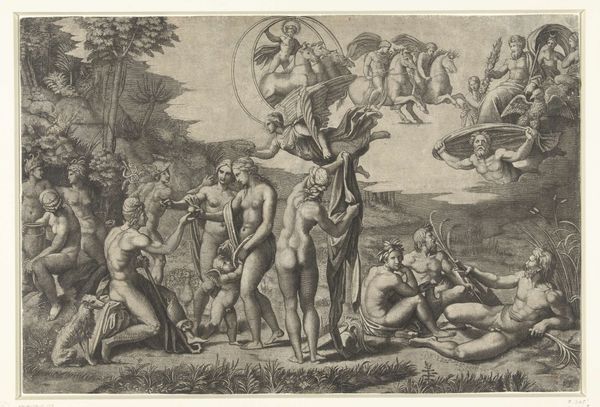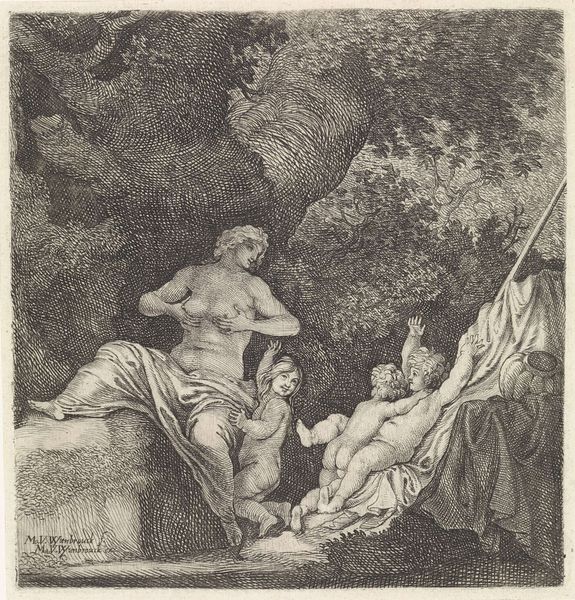
painting, oil-paint
#
baroque
#
painting
#
oil-paint
#
landscape
#
figuration
#
oil painting
#
roman-mythology
#
mythology
#
genre-painting
#
history-painting
Dimensions: 122 x 179 cm
Copyright: Public domain
Curator: Nicolas Poussin’s "The Birth of Bacchus," created in 1657 and now residing at the Fogg Museum, plunges us into a mythological landscape rendered in oil on canvas. What strikes you most vividly as you look at this piece? Editor: Initially, it's the overwhelming sense of dreamy, almost melancholic repose. Everyone seems half-asleep in this golden light, as if caught in a beautiful, languid dream. Curator: Indeed. The iconography points to a deeper narrative. Bacchus, the god of wine and ecstasy, is central. Look how he is presented. Mercury delivers baby Bacchus into the care of nymphs. Juno looks upon this from her cloud, along with Jupiter. Editor: Oh, it’s heavy with Baroque sensibilities – the drama, the rich coloring – but Poussin subverts expectations, doesn’t he? Where you’d expect a chaotic bacchanal, you get this muted, contemplative scene. I’d always imagined his beginnings were much more, shall we say, vibrant. Curator: The dreamlike quality serves a distinct purpose. In some ways, Bacchus represents more than intoxication. He is metamorphosis, liberation, a dissolution of boundaries. It speaks to the transgressive nature of pleasure, perhaps viewed through a more philosophical lens. The figures here are archetypes that speak across time to experiences central to human existence, ecstasy and suffering included. Editor: The light definitely helps that feeling, with the way it almost strokes the figures, the almost smoky color palette makes everyone so vulnerable and, as you say, archetype. It is lovely and yet feels loaded with complexity, that balance is compelling. Curator: Absolutely. It seems Poussin invites us to question our own perceptions of joy and abandon, to ponder the dualities that define the human condition and even what separates civilization from wilderness. Editor: Well, now I feel like I need a glass of something potent to help me fully unpack it all. A painting that invites pleasure and reflection in equal measure. Curator: An apt conclusion, indeed. May we all embrace the complexities and contradictions of the human spirit as art like this shows us the way.
Comments
No comments
Be the first to comment and join the conversation on the ultimate creative platform.
